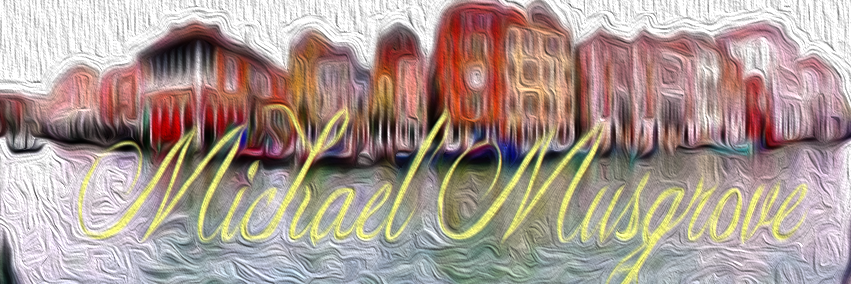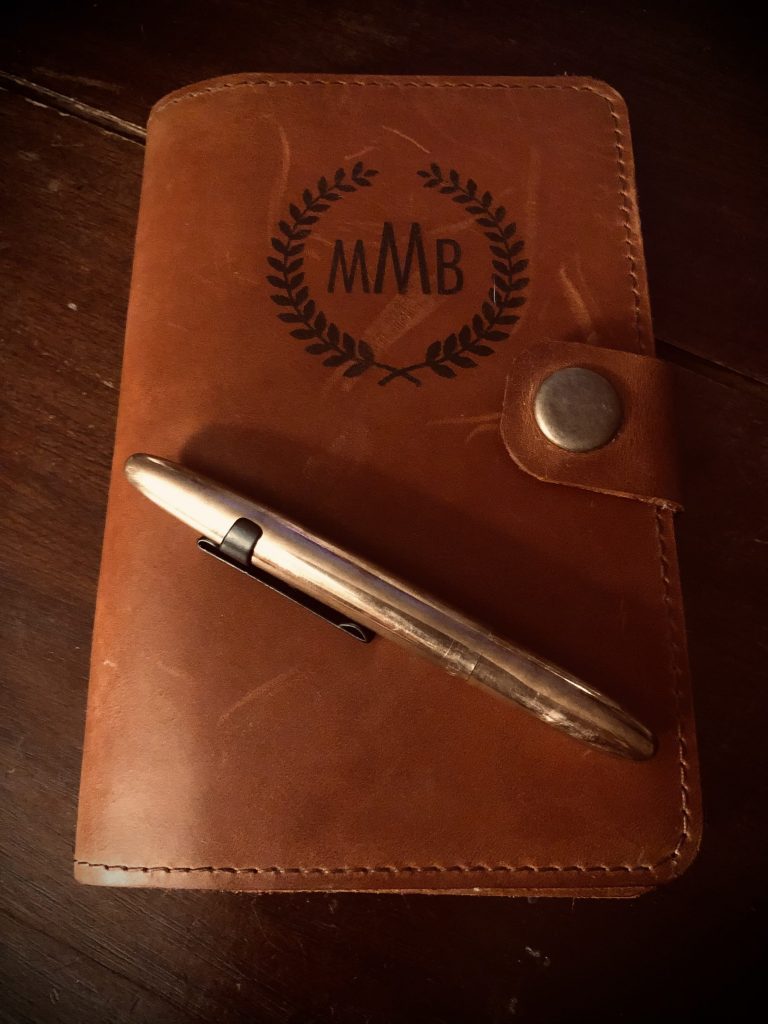One thing that can slow a writer down these days isn’t thinking of what to write about or who to write about or even why to write at all.
It’s where to write.
And I don’t mean on a notepad or laptop or under a shady oak or in bed or where you might physically act. It’s where you house your writing in different stages.
“Different stages” presumes you write in stages, such as notes, research, a draft, a rough draft, a final draft, prologues, edits and don’t just bang something out and hit “Publish” and you’re done. Although many do that, too. I used to do that until I realized people were reading my writing and I should offer them better than crazily shooting for a 3-pointer and hoping for the best.
My writing has evolved, I’m happy to say. Organically and from what works best. Meaning: what produces better output. I get inspired when going for walks I’ve noticed. And in the shower. The blood is pumping to my brain, and my senses are more alive which is the obvious reason.
So getting down ideas before they vanish is tough when you’re either soaking wet or bobbing up and down walking. So I use a few tools to get ideas down, which are computer-assisted note-taking, using my voice, or just stopping where I am and jotting my ideas down on paper or on my phone. I try to carry my Field Notes journal (photo below) with me whenever I leave the house for various purposes. Notes, diagramming things, references, quotes, and whatnot.
Yes, I can use my phone, but I simply hate being that reliant on it for every single thing when a pen and paper makes far more sense. Not to mention looks more normal, if I were worried about such a thing.
I’ve been writing for a long time. And I do mean a loooooong time. I think back to 8th grade English where my writing interest was sparked by my English teacher Mr. Hooks, whom I’m friends with to this day on Facebook, amazingly. He, like most of my English teachers, had a spurious relationship with me. Like all English students, I imagine. English majors and students of any seriousness seem to be a different breed and quite passionate about some of the most mundane of things.
Allow me to divert this post off to explain what I mean. Which in itself might give you an idea of how we think. Non-linearly, which can be troublesome when trying to spin a tale from point A to B and have a definitive story arc to follow.
Mr. Hooks was probably in his late 20’s when he taught me 8th grade English. A tough audience to begin with. Middle school boys and girls at a private school at least, where the majority of us actually cared about doing well and had support at home to help with our academics, which isn’t the same story with most public schools I’m aware of. There are a few students who have the level of support given by private school parents, but not usually. That’s why they’re sent to a private school, to begin with.
Mr. Hooks assigned us to keep a journal all year and wrote 2 pages EVERY DAY in it. Plus our regular homework and reading assignments. And diagramming sentences upon more sentences. A LOT of sentences. Which took up a lot of time, especially if you played sports and had outside extracurriculars as I did, like art and computer programming and Boy Scouts, and other interests like playing in the woods, art, hunting, biking and building things in the workshop.
So that’s where I began to focus on writing every day. And it led to joining honors English and being FAR more interested in writing than reading. My mother and aunt and even father and uncle loved reading. LOVED it. I considered it a passive, idle activity that my level or energies had no patience for. But my mind did enjoy using my fingers to release what was flying around in my mind like a tornado every second of the day.
And it still does. I need to become better at jotting my ideas down and keeping a journal. I’ve begun carrying a journal and pen around with me so I can write drafts, ideas, and sketches that pop up in my mind all the time. I find it’s easier and more enjoyable to do this with an actual pen and paper and leather-bound pad than my iPhone and app, of which there are loads of apps that I could use. And I do use a lot of them to help with lists and idea generation and for convenience’s sake. Ulysses, Listify, Notebook by Zoho mostly but I’ve tried Hemingway and others. I gravitate organically to the ones I find work best for me. And that’s what I’d recommend for anyone. Try a few and see what you like to us most. Don’t use something because someone else says it’s best.
Here’s my new iPhone, which I must say has a great camera, and I use it to take photos for journaling as much as anything:
Something I’ll never forget is when I was in boarding school I managed to be put into Honors English in 4th and 5th forms. We used “forms” as the English prep schools do and not “grades.” 4th form=10th grade. Honors English housed some of the biggest brains at the school, which I was humbled to be counted in among, and really had no business to be among them, if you ask me. They all ended up attending Ivy Leagues and rightfully so. A class of about 12 boys, being an all-boys boarding school.
But one boy, Will, who I believe ended up being our senior prefect and the captain of the golf team, went on to Princeton. He probably started as a Sophomore, which wasn’t uncommon. We were allowed “weigh points” to our GPAs which on a 4.0 scale could jump up your GPS to a 5.5 or 6.3 even if you were taking college classes and working beyond what was offered at our campus, which already was pretty rigorous. I remember several boys starting Harvard as Sophomores and Junior because they have taken and aced the classes needed as Freshman and Sophomore. Those were the types of brains waking around school, which was crazy.
So anyway, we were discussing something in English class with Mr. Barnhardt, who himself had attended Yale and was in the Peace Corps in the late 60s and quite the liberal. The scene wasn’t unlike something out of Dead Poets Society. We were discussing something with a lot of energy and intensity and boys were getting riled up and Will couldn’t take anymore and stood up, pushing his desk across the room. Will was lanky, skinny in fact, and always wore cinched up dark blue Levi blue jeans with a starched button-down oxford tucked in – very spiffy for an all-boys school that was located out in the middle of an 1800 acre cow farm, and he had shockingly red hair and a thin gaunt face that was like Ichabod Crane’s with along pointy nose and freckles. Tall, skinny ginger, if you will. And seriously smart.
And he stormed out the room and slammed the door behind him. The room suddenly quietened, and we all looked at each other with startled looks on our faces that morphed into an “Oooooooohhhhh” face as Mr. Barnhardt slowly walked toward the door and out into the hall of the 100+-year-old building to see what was the matter. I could see that Will was sitting on the floor out in the hall with his back up against the wall and his long, bent, skinny legs and docksiders being viewable next to the doorway.
He closed the door softly behind him and we heard mumbling outside of the door as we began mumbling within about what WIll was freaking out about.
They both came back in and Will was visibly upset and we learned he was distressed due to the fact we were NOT TAKING CLASS SERIOUSLY.
I’ll never forget that. Because I don’t think many, if any, other students across America have ever seen that type of focus and dedication and serious approach taken to 10th grade English by a student. That moment taught me something, however. We, and I specifically, were not at that private school to screw around. I was there among serious students that were serious humans about things that in fact are serious. Like education. The opportunities afforded us as kids that were sent to such an elite institution. Not to take such things for granted.
Back to the original topic: Where is the BEST place to write?
As with anything, the answer begins with: It depends.
- It depends on what your goals are and what your wants and needs are.
- Do you want to gain a large following and audience?
- Do you want to make a lot of money from your publishing? How? Subscriptions, ads, or affiliate links/reviews?
- Where are you in your writing skill level? How does that factor into your goal? Do you need to be an expert-level writer or are you generating content based on keywords/SEO or writing for a niche audience?
- Are you planning to write long-form, short-form, or a combination of both?
- Do you care about owning your content and having control over it long-term?
- What kind of writing do you plan on doing? Informational? Fiction? Reviews? Poetry? It matters.
- Will it be accompanied by a Podcast or audio? Or any other type of media?
These are a lot of questions to answer, but they matter when choosing a platform to focus your writing on.
As for the choices, here are some of the most popular platforms, each with pros and cons and strong reasons to choose them over others depending on how you answered the questions above:
WordPress.com: This is the version hosted by WordPress and you’re on a subdomain of WordPress.com. Meaning you are attached to WP’s servers and domain like: MichaelMusgrove.wordpress.com. You have little control and options here, but it’s easy, fast and time-tested.
WordPress.org: This is the self-hosted type of site/blog where you hook up your domain to a host and run it on WordPress installation and CMS database using MySQL and PHP. It’s what I’m doing here and elsewhere with little fun projects like Marketing Dog. You have more control and ownership, but you need to back up your site and be careful and knowledgeable about what you’re doing. Not for amateurs but not difficult at the same time. Always trying to make it easier and onboard faster.
Ghost: This is a great way to publish and nice clean blog and have the dirty work done for you. Ghost gets better each day and I have a lot of faith in John O’Nolan et al. and the way he’s running this. It started as nothing super-fancy, but that isn’t what the majority of writers need. What he’s doing is enabling writers to be paid for their effort. As a writer, and whose words are in an online sea, I’m interested to see how that’s going to pan out.
Medium: It’s so much fun and easy to write on Medium. That’s the hook. But they will keep your assets and not pay you much at all. There is a chance for a lot of exposure, but I personally know no one who has made any serious $ on Medium. But it sure is easy and pretty. And you can host your own domain here if you’re a member or grandfathered in like me (http://aBig.Fish and HTTP://zxoxz.com for two examples.) Jack Dorsey is not a great person either, and he runs the place, you have to remember.
Substack: This is trying to become the anti-Medium. You own your material and can set up a free site here. But your domain is a subdomain of Substack, and it isn’t all that glamorous of a place to set up shop. But you can monetize here. It will take a lot of deliberate writing, work, and dedication, though.
LinkedIn: Yes, you have your own space to write on LinkedIn. They control your content but you can get a lot of eyeballs on your work and it has a nice audience for people that want to be influencers and grow an audience of professionals.
Blogger: This is where I got started and it was popular for a while in the early days but I dare say it’s seen it’s prime. A long time ago. You can set up a free blog, but you have no control, your domain is run by Google and you are basically just writing for Google.
Hey.com: This is another new player that is generating a lot of interest. It’s easy to set up, comes with a price for that simplicity, and helps you market yourself. You write emails and it makes blog posts out of them and sets you up with a blog/website from that work. A neat idea for those that just can’t muster a website for some reason.
Wix/Squarespace/Hubspot/Shopify/Etc… As with the above, setting up a blog on Hubspot, Squarespace, Wix, Shopify, etc… is easy and it’s meant to help you generate sales and goals that are part of a marketing/business plan and strategy. So this can be great depending on your predefined goals. They aren’t cheap, though but they scale with your audience and business so don’t dismiss them just because they aren’t free. Most things in life that are worth anything don’t come free or easy.
Shopify is obviously meant to run an e-commerce site. It’s straightforward. Wix and SquareSpace are for people who don’t want to fool with code or anything to do with anything remotely technical. Just set up a couple of things, and get to writing or posting photos, or whatever you want it for, within it’s tightly defined offerings. (The reason WordPress.org is so popular is that it’s much more potent than the others, depending on your level of familiarity and skills with design and development. It’s open-source, so you can fork it and go wild.)
Hubspot is for Sales since it revolves around a CRM. But allow me to go further. It’s for marketers as well. It helps us marketers send MQLs and SQLs to the sales team. It allows marketers to do a lot. I’m a big fan of HubSpot. It’s not cheap though. But they won’t push you into biting off or buying more than you can chew, which is a great business model, I think. No one likes pushy salespeople, forceful pop-up ads, and all that jazz. But if you use it as it’s meant to be, it should pay for itself, just like any good marketer, like myself, does.
How can I help you?



